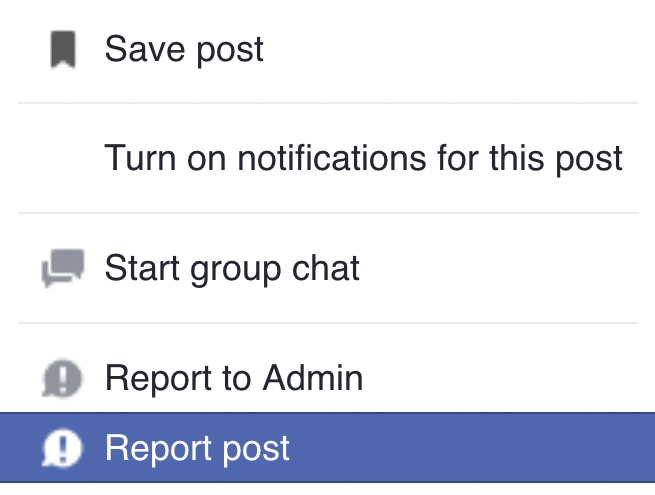How to Avoid Online Harassment
Harassment can come in many forms, in person or behind a screen, sexually or verbally, but you don’t have to stay silent about it.
November 28, 2016
During this tumultuous post-election period, it’s more important than ever to know how to combat online harassment and hate speech. Here are some tips and tricks on how to stay safe on the most popular social media platforms.
If your Facebook isn’t an echo chamber, you’re bound to engage in the dreaded but inevitable Facebook fight. Right now, most Facebook fights look like high school fights on steroids. Below are some easy-to-follow steps and advice on how to deal with Facebook hate.
Why You Should Report a Person
If you feel that you are a victim of hate speech, threats, sexual harassment or anything else that poses a threat to your safety, you should report a person or group. Generally, Facebook will take action if they feel what you are reporting violates their Community Standards.
How To Report a Person
If you want to report a post or photo in a Facebook group or on your timeline, click the downward half-arrow in the upper right-hand corner of the post or photo. If you want to report a comment, click the “X” to hide the comment, and then it will prompt you to unhide, report or unfriend the person who made the comment.
What Happens Once You Report a Person
Even if a comment, photo or post has been reported, there is a good chance that nothing will happen. There are little to no statistics on how many Facebook reports turn into lawsuits over hate speech or harassment, which is likely due to Facebook’s vaguely-phrased Community Standards. They ask you to keep in mind that they “may take action any time something violates the Community Standards outlined” and “consequences for violating our Community Standards vary depending on the severity of the violation and the person’s history on Facebook.” Basically, there’s no guarantee the person will receive a punishment even as minor as getting blocked from using Facebook.
The fact of the matter is, according to a Pew Research Center on online harassment, 73 percent of adult internet users have witnessed someone being harassed in some way online and 40 percent have personally experienced it, yet only five percent actually report the harassment to local authorities. Internet access is a right, but those who violate others through social media should be penalized.
Other Advice
Don’t engage. This is what everyone’s mothers and Emily Post would advise, but sometimes it’s hard not to. So if you do engage, don’t sink to the harassers’ level. Remember what Michelle Obama said — “when they go low, we go high.” So keep your responses classy.
Facebook’s Bullying Prevention
If you feel you are being bullied, Facebook offers advice and several PDF guides on dealing with bullying. But especially in cases of cyberbullying, it may be more beneficial to talk to someone in person.
Student Health Center
If you want to talk to someone face-to-face, NYU offers wellness and mental health services, including 30 minute therapy sessions. Make an appointment online for free so you can avoid the $10 walk-in fee. The center services thousands of students and it can be difficult to get an appointment in a timely matter. So you can either walk in and pay the fee or call the 24-hour Wellness Exchange hotline (212-443-9999) that you learned about during the Reality Show freshman year.
I can’t claim to be an expert on dealing with Twitter hate, because I spent way too much of my time in high school engaging in political arguments that usually took an ad hominem turn. However, it’s in my nature to be argumentative, and I think Twitter is a viable outlet for that tendency.
Twitter Reporting
If someone tweets something that is grossly offensive to a group of marginalized people, don’t respond. Just click on the three dots beneath the tweet and report the user for “hate against a race, religion, gender or orientation.” Unfortunately, Twitter can be fairly opaque in its rationale for banning or suspending accounts, and it’s known for being a platform for free speech of all kinds.
When to Respond
Some offensive tweets are not hate speech, and the person who’s arguing with you has just as much of a right to their opinion as you do — even if you believe their opinion to be wrong. When this is the case, feel free to reply, but make sure your response is logical and cohesive. As the adage goes, what you say on the internet lasts forever.
What to Say
It’s best not to get riled up on Twitter. Instead, see if you can get a rise out of the other person. I started responding to one particular user’s offensive tweets with Simpsons screenshots. Maybe it was immature, but I always felt like I’d won.
A version of this article appeared in the Monday, Nov. 28 print edition. Email the Features Desk at [email protected].
























































































































































